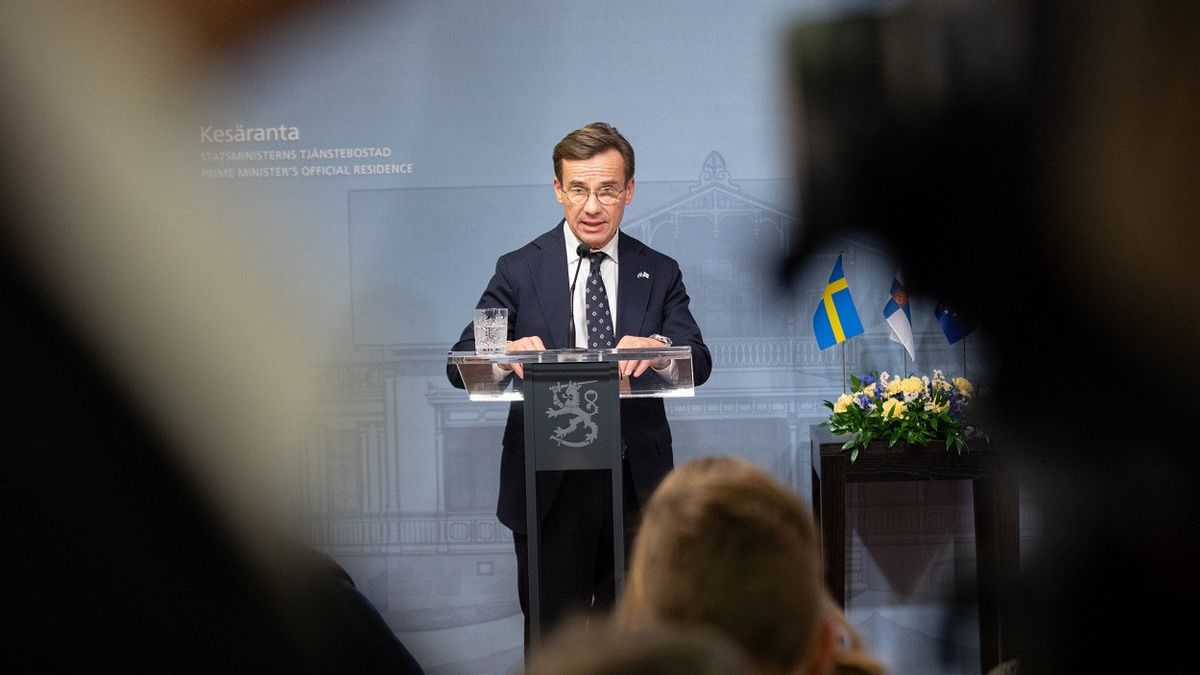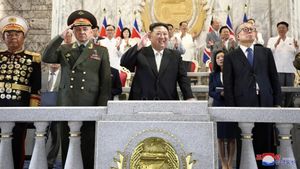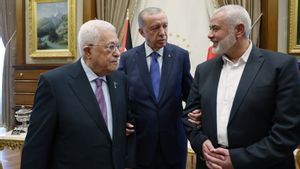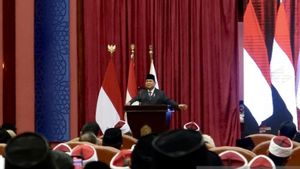JAKARTA - Swedish Prime Minister Ulf Kristersson is "very worried" about the consequences that will occur if demonstrations tarnishing the Qur'an continue, amid growing Muslim anger against a series of attacks on the Muslim holy book.
The attacks on the Qur'an in Sweden and Denmark have offended many Muslim countries including Turkey, which support Sweden to join the Organization of the North Atlantic Treaty (NATO), the ideal of Stockholm after Russia's invasion of Ukraine in 2022.
PM Kristersson told Swedish news agency TT that further requests had been submitted to police for permission to hold a protest in which the blasphemy against the Qur'an was re-planned.
"If the request is granted, we will face days where there is a clear risk that something serious will happen. I am very worried about what will happen," he said.
The Swedish Embassy in Baghdad was invaded and burned on July 20, by protesters angry with plans to burn the Qur'an.
PM Kristersson further said the decision whether to grant permission for the demonstration depends on the police.
Meanwhile, Sweden's security agency, SAPO, maintains a threat-level assessment at number 3 from scale 5, indicating an "increasing threat" during the crisis, but the head of SAPO said there had been a strong reaction to recent events.
"Swedia has changed from a country that is considered a tolerant country to a country that is considered an anti-Islamic country," Charlotte von Essen told reporters on Thursday.
Previously, Denmark and Sweden had said they regretted the burning of the Qur'an, but could not prevent it under rules that protect freedom of expression.
On the other hand, Sweden accuses other countries - such as Russia - of manipulating this crisis to undermine its interests and its efforts to join NATO.
"In some countries there is a perception that the Swedish country is behind or forgives this. We are not," said Swedish Foreign Minister Tobias Billstrom.
"This is an action taken by individuals, but they do so within the framework of the law of freedom of expression," he explained.
Billstrom said he had contacted the foreign ministers of Iran, Iraq, Algeria, and Lebanon, as well as the United Nations Secretary-General of the crisis at this time.
SEE ALSO:
"And recently I will speak with the Secretary General of the Organization of Islamic Countries," said Billstrom.
"We will discuss these issues and it is important to emphasize that this is a long-term issue, there is no quick fix," he added.
It is known that the Swedish government is facing a difficult balancing action in defending a broad law of freedom of speech, while at the same time avoiding potential insults to Muslims.
The English, Chinese, Japanese, Arabic, and French versions are automatically generated by the AI. So there may still be inaccuracies in translating, please always see Indonesian as our main language. (system supported by DigitalSiber.id)


















